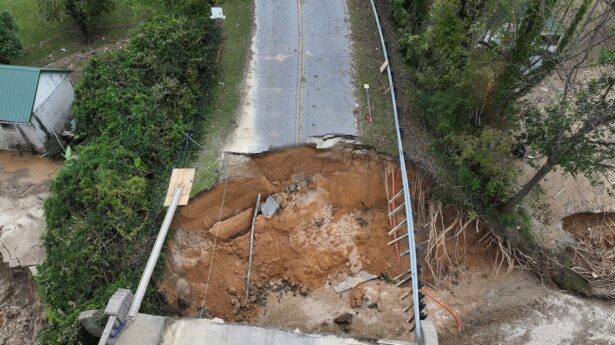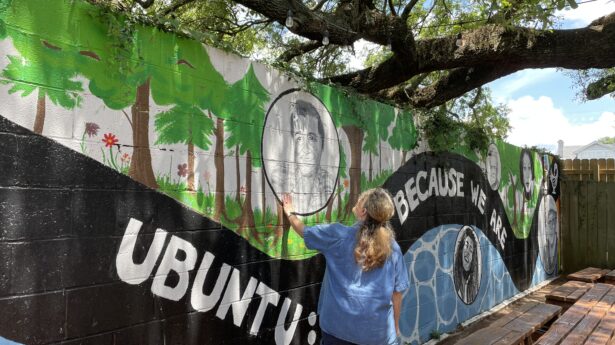The Unitarian Universalist Service Committee advances human rights through grassroots collaborations.
Multigenerational Seminar: Global Solidarity Beyond Empire
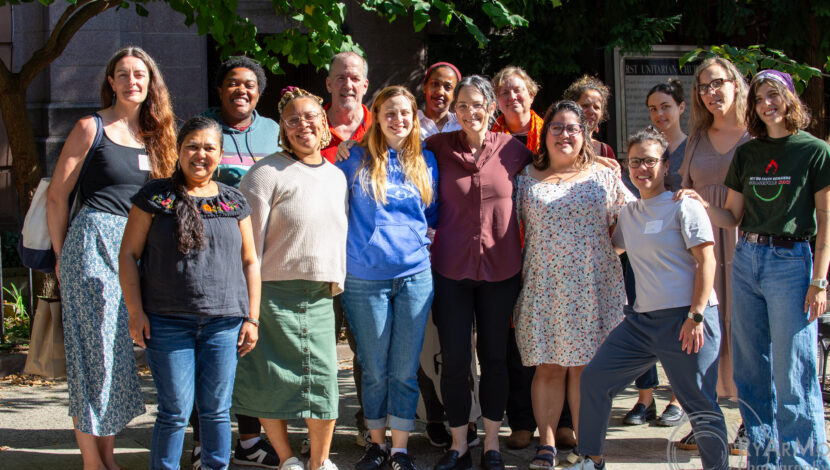
By UU College of Social Justice on November 21, 2024
The 2024 United Nations Multigenerational Seminar, Reimagine Tomorrow: Global Solidarity Beyond Empire, took place this September in Brooklyn, New York. Intentionally designed to foster community, self-reflection, and spiritual grounding, this weekend-long seminar—as all other seminars in the event’s history have done—invited participants to deepen their understanding of human rights at the global level.
Expanding on the 2023 UN Multigenerational Seminar theme—Demilitarization & Abolition: Resist Policing and Empire—the 2024 event once again challenged participants to understand the United States as an empire. Moreover, it used the keynote’s theme of statelessness to reflect on what global solidarity means both in concept and in action. Unitarian Universalists have a historic understanding of the centrality and importance of interdependence but have not yet given the same attention to interdependence’s necessary counterpart: Solidarity.
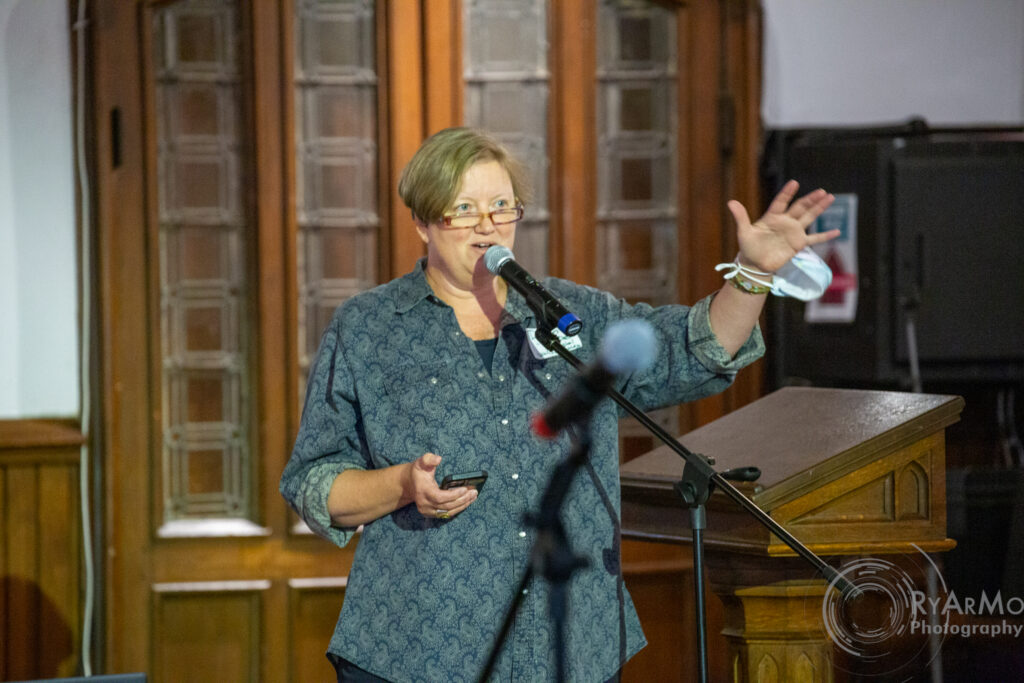
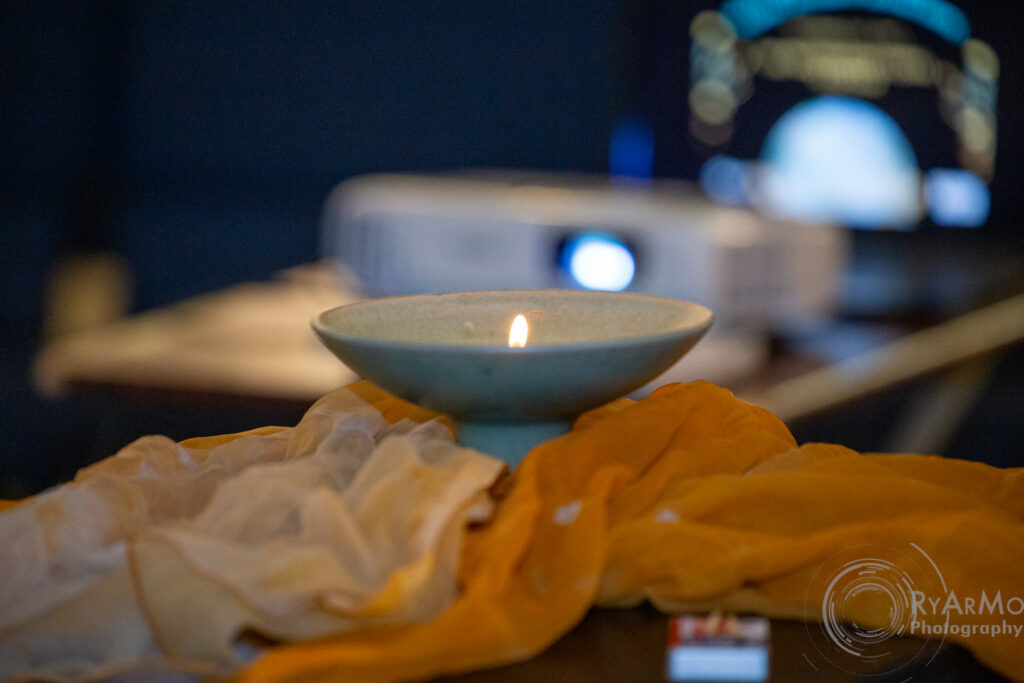
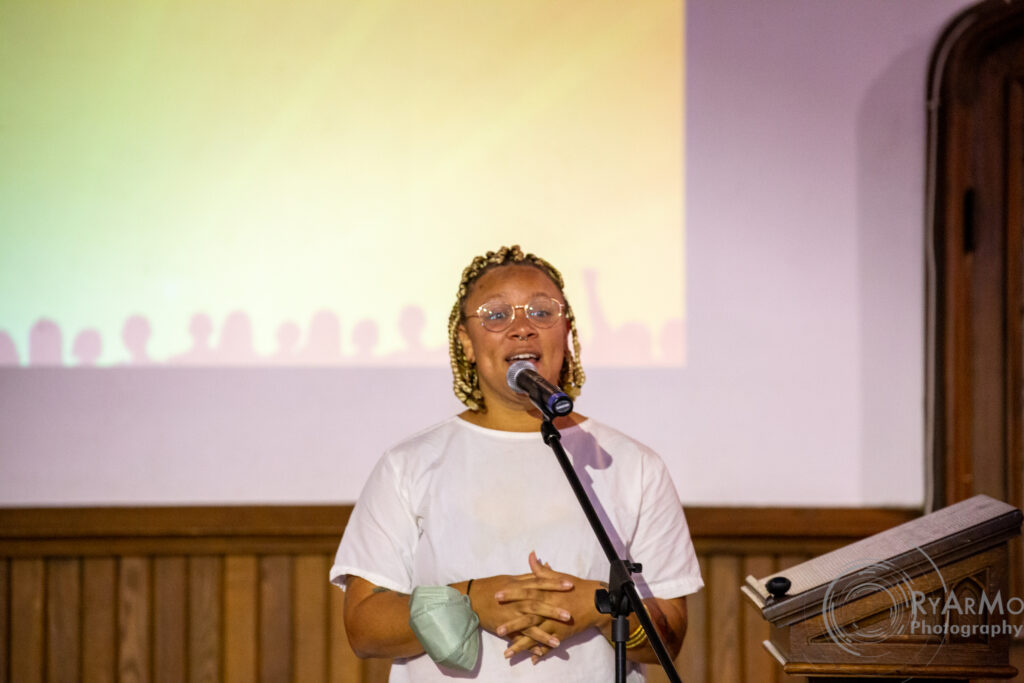
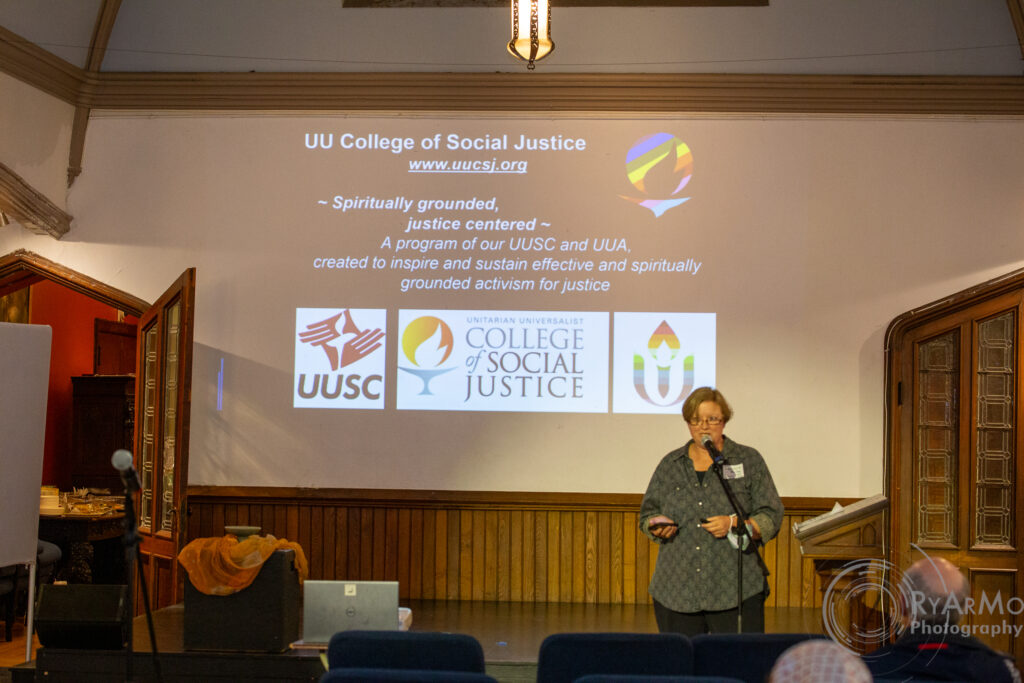
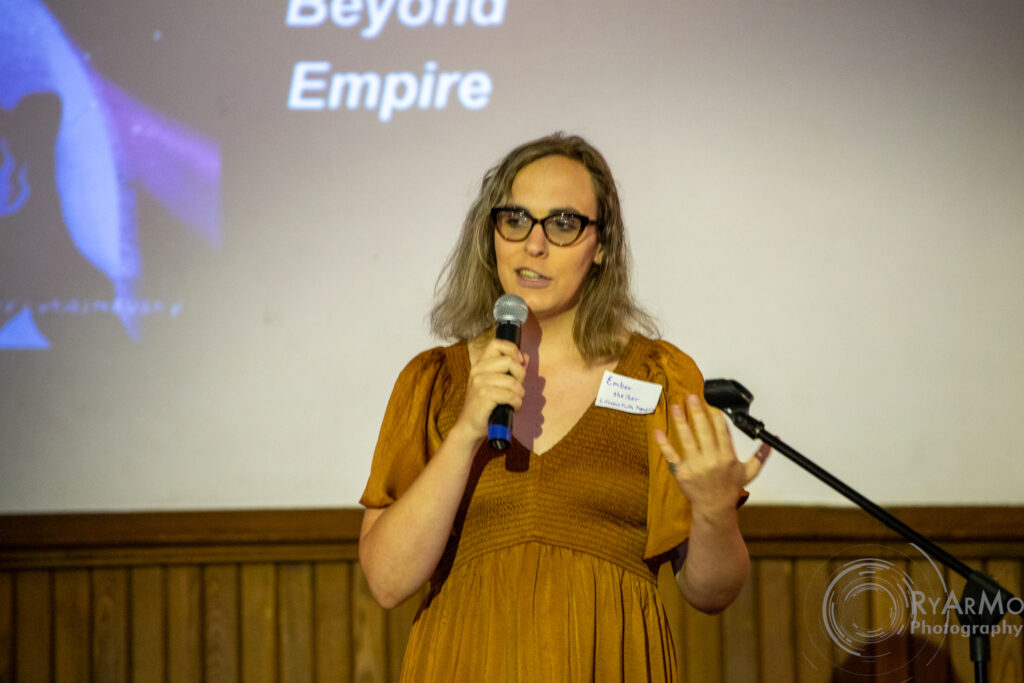
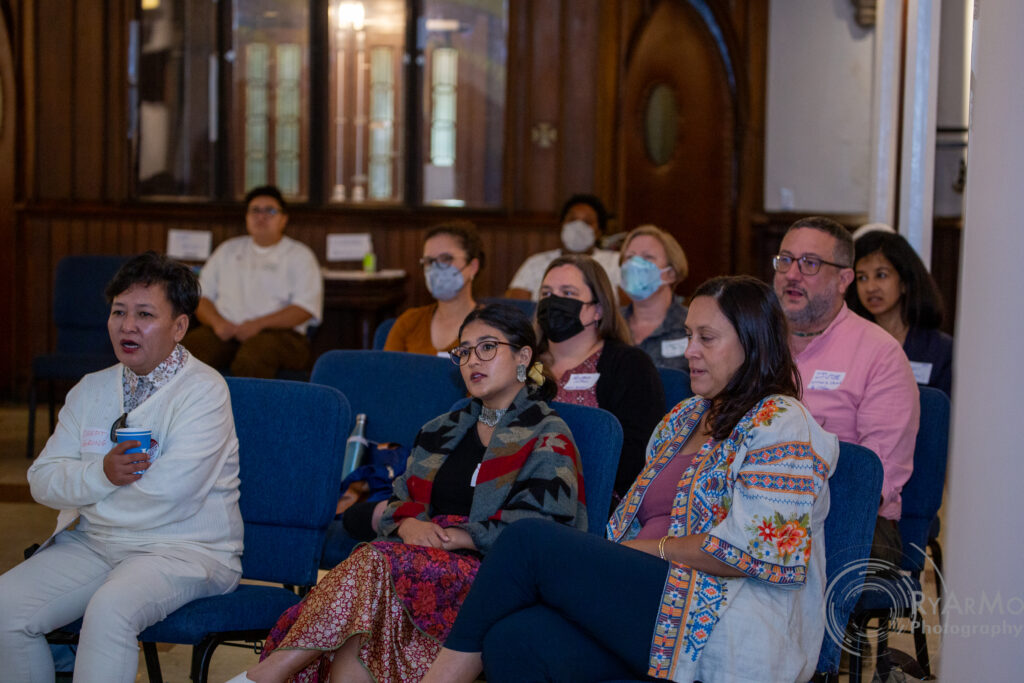
As Leah Hunt-Hendrix & Astra Taylor share in 2024’s From Solidarity: The Past, Present, and Future of a World-Changing Idea—which shaped much of the seminar’s reflection pieces— “Solidarity does not magically emerge as a result of our interdependence—it depends on our ability to describe what bonds us, who we are, what has value, and how we should live together.”
After a welcome to set the context, community agreements for how to be together, and a song to both lift and ground energy, participants were able to hear the stories of the seminar’s keynote speakers, Deepti and Neha Gurung from Nepal. As mother and daughter, they shared how their multigenerational experiences of statelessness taught them about the importance of human rights for all people—regardless of citizenship, country, or identity—and moved them into global solidarity with others who had also been denied access to the rights of citizenship.
Mayuri Anupindi, UUSC’s Global Strategist, shared insights into the mechanizations of the United Nations and how this imperfect tool can be leveraged as a tool to practice solidarity and fight for justice at the international level.

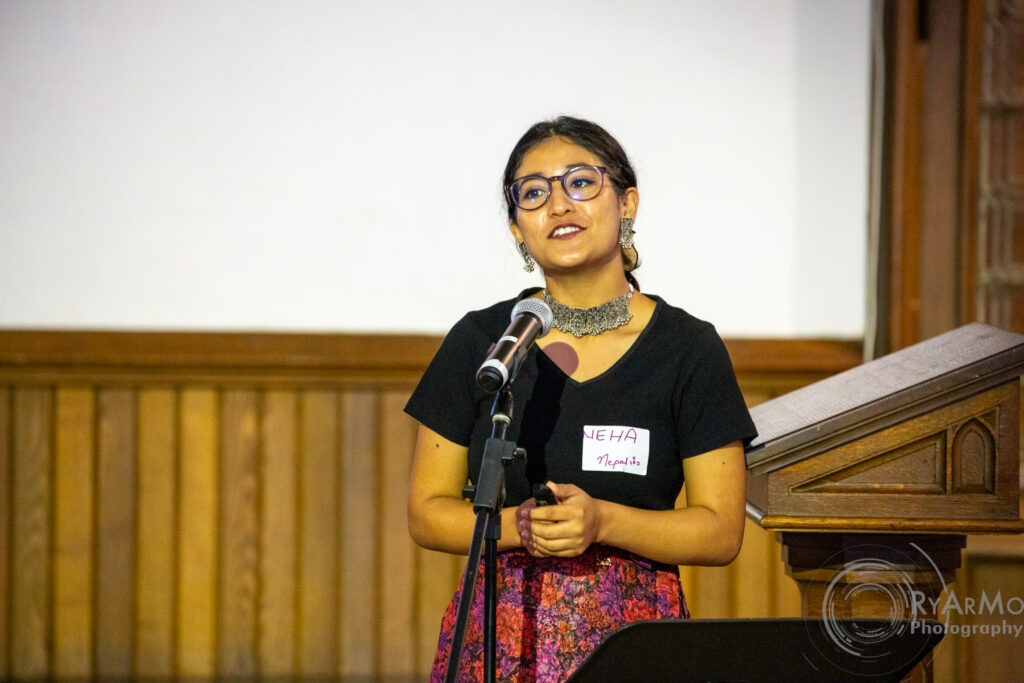
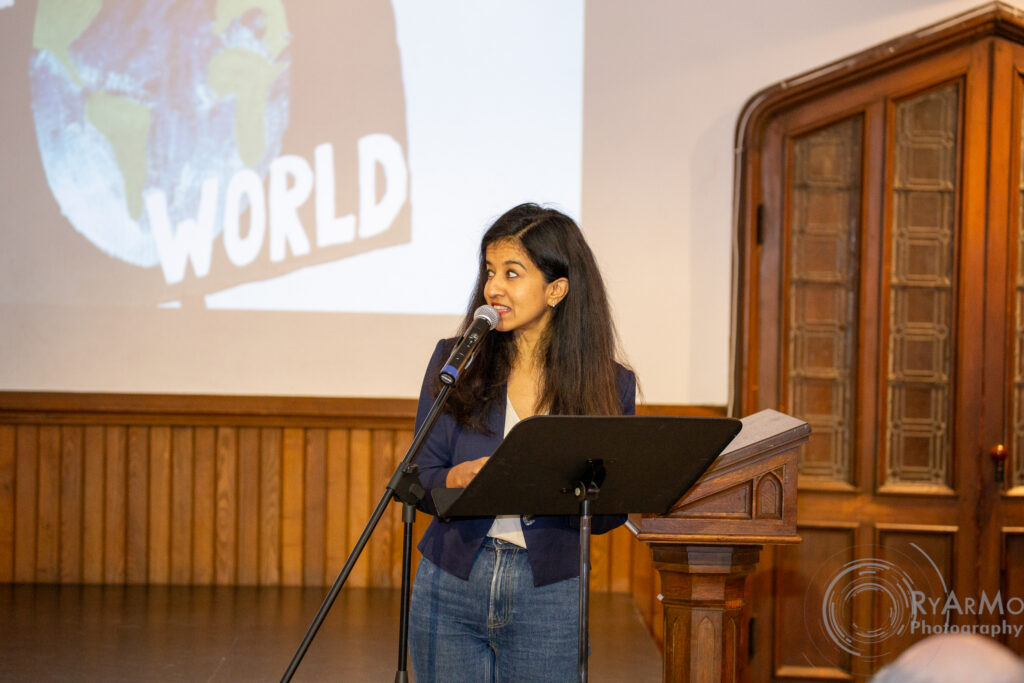
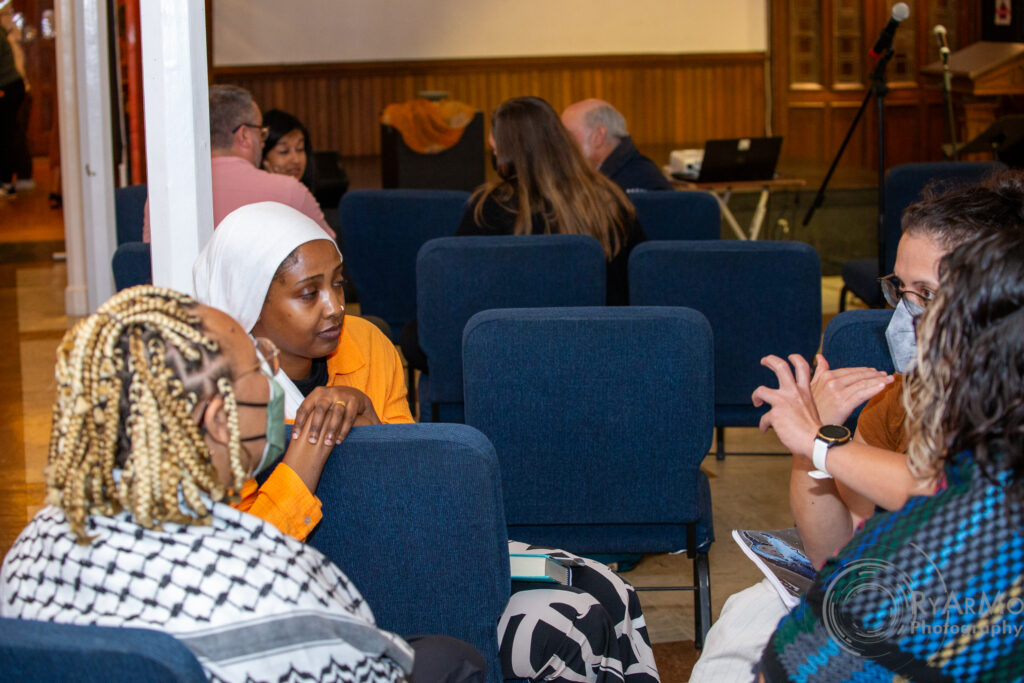

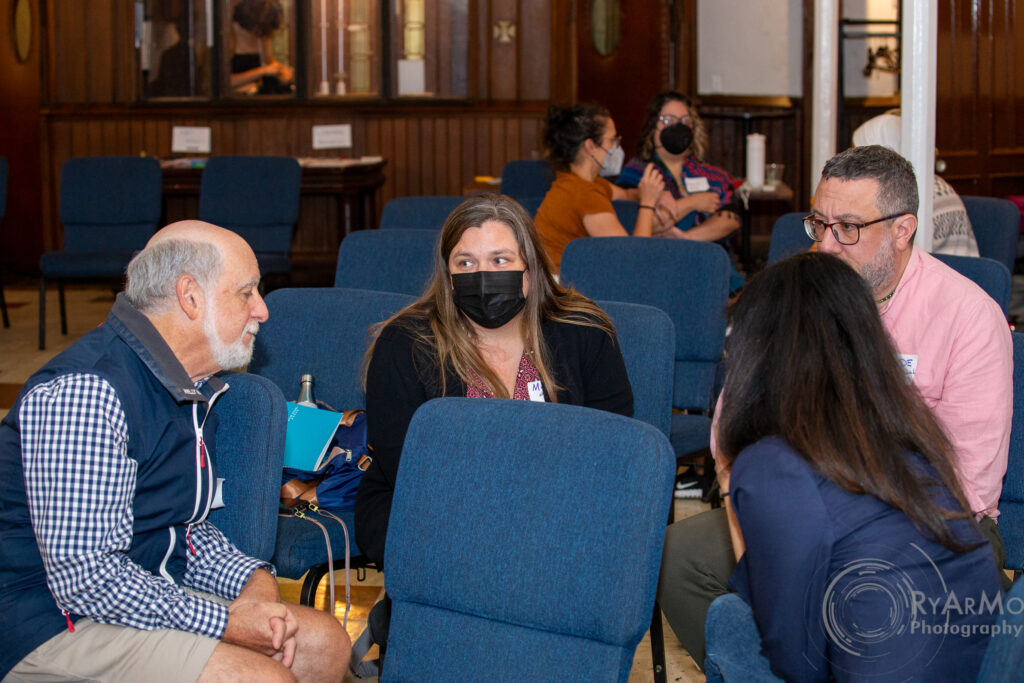

The Lost Art workshop, offered by former CSJ Program Leader and current UUSC Board Member Marissa Guitérrez-Vicario invited art into the conversation, and led us into creative imagination practice grounded in border stories. The UU Religious Leaders panel modeled integrating the learnings of the day into a sustaining theology—including what Rev. Michael Tino of the Church of the Larger Fellowship described as “hope with a power analysis.”
Sunday morning began with an embodiment practice through theater games with the Theater of the Oppressed, NYC. These “de-mechanization practivities (practices and activities)” encouraged participants to shift out of default body processes, and to use shapes, sounds, and interactions to question true understandings of power and intentional interaction. Sunday worship with our host congregation, First Unitarian Congregational Society in Brooklyn, centered on practices of trust and solidarity.
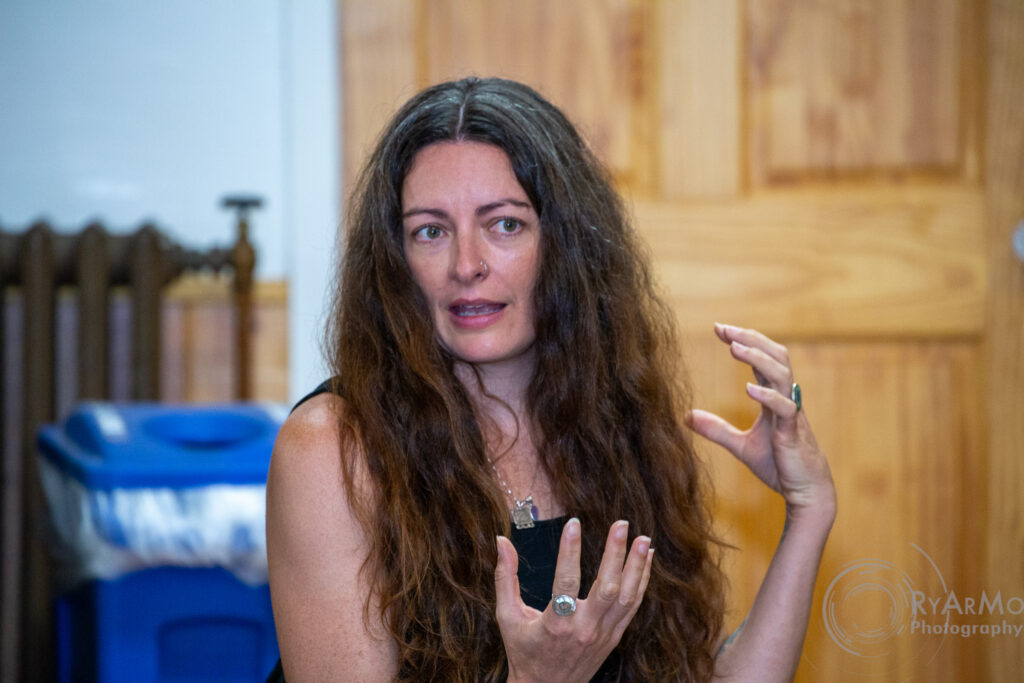
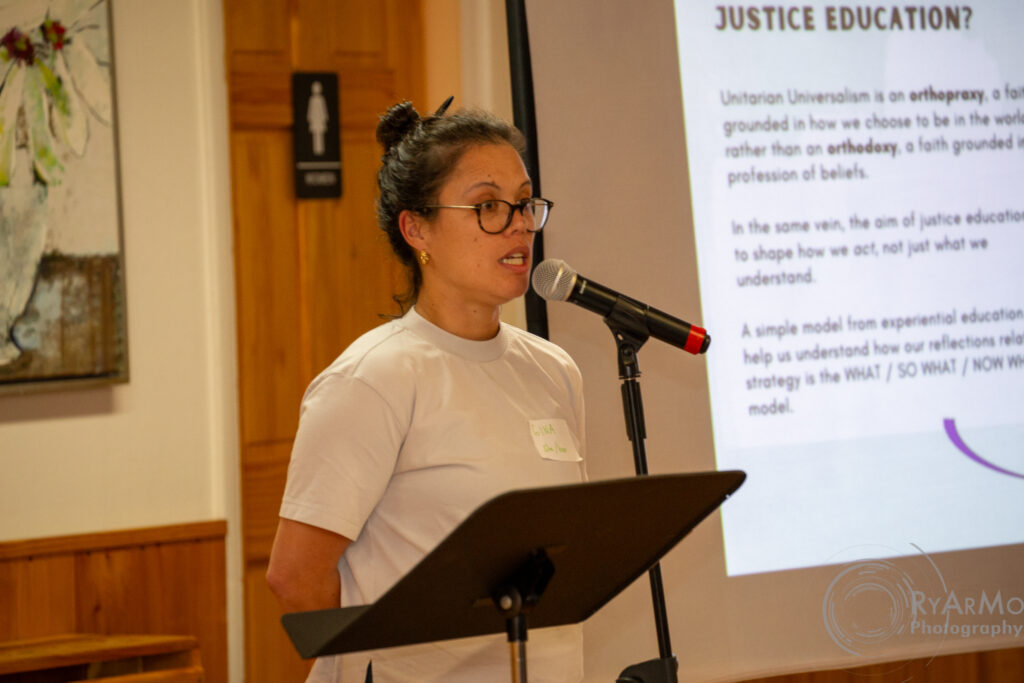
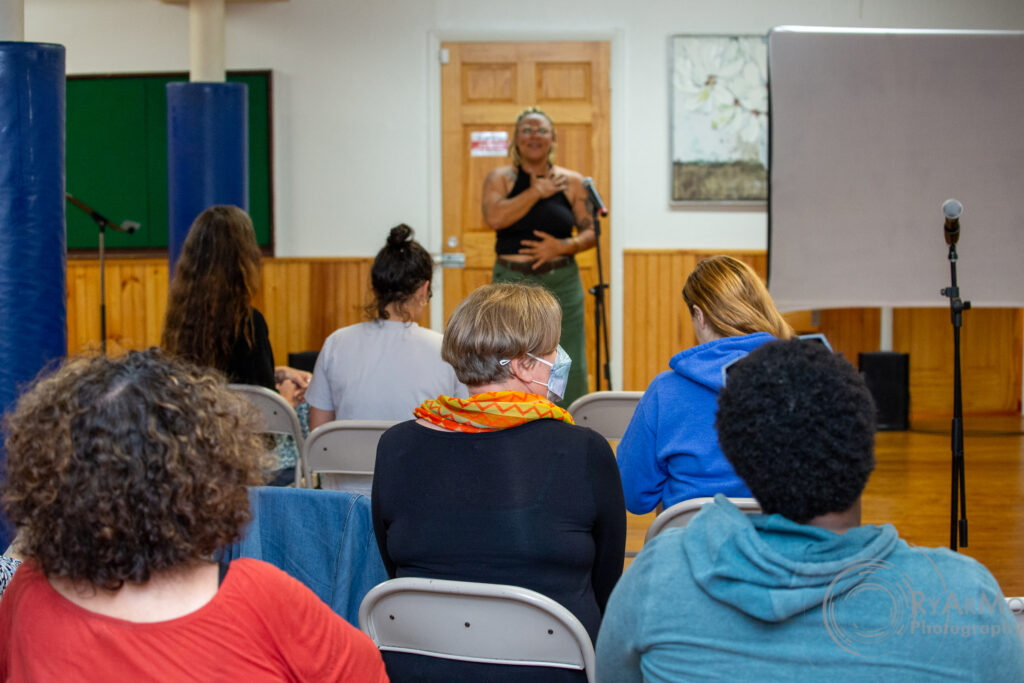
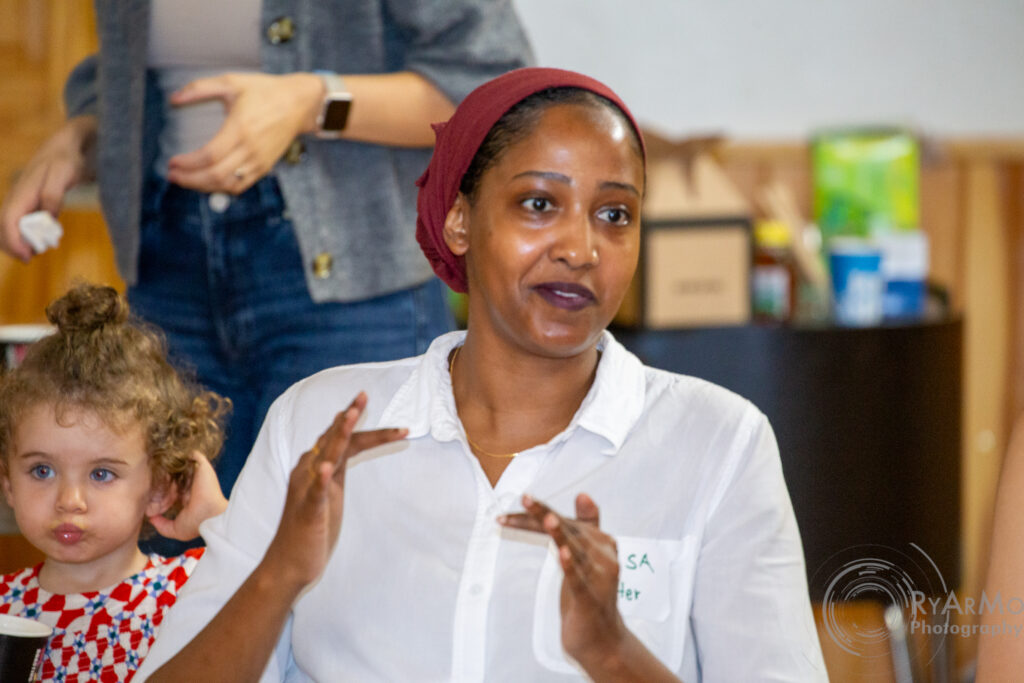
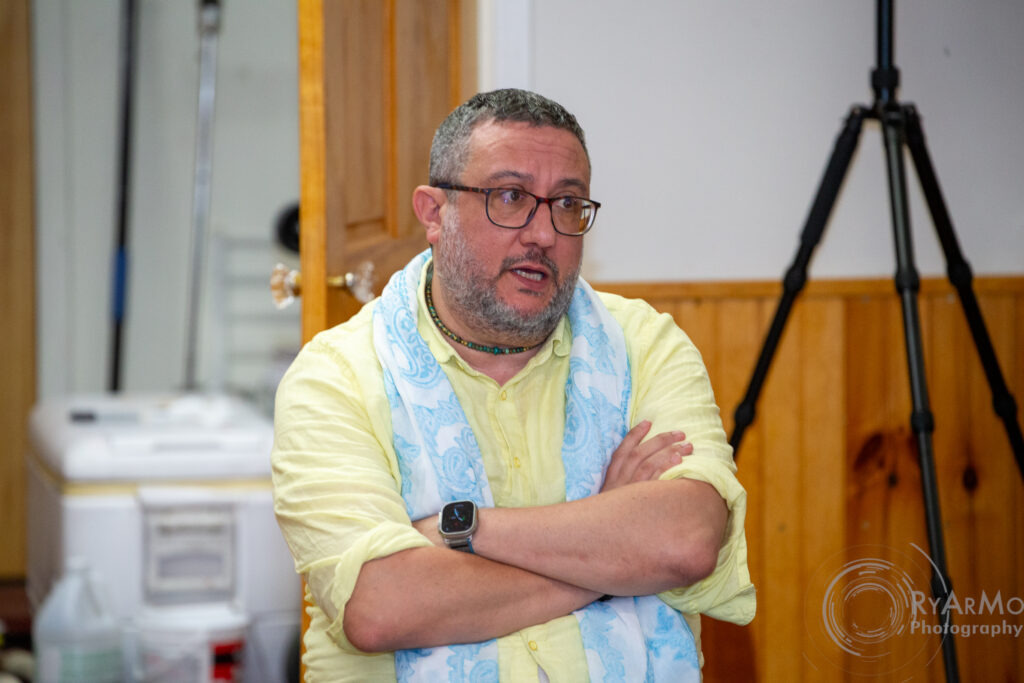
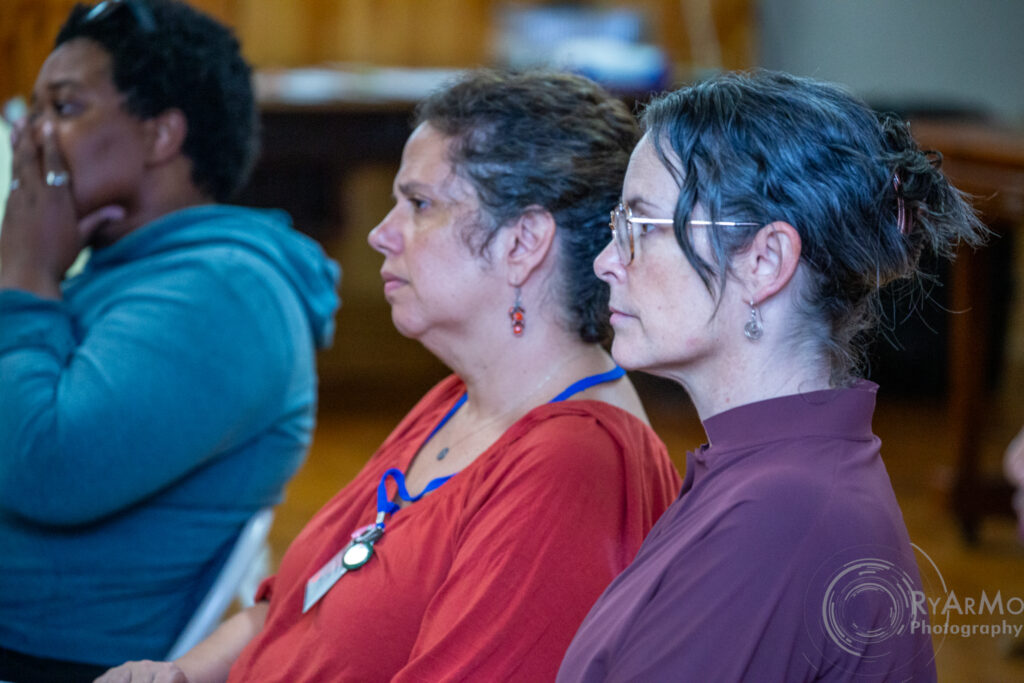
At each transition point, we were sung into gathering by volunteer song leader, the Rev. Sara Green. The seminar ended with:
- A grounding in pedagogy for solidarity, offered by Gina Collignon, UUCSJ’s Senior Justice Education Associate, Pedagogy;
- A deep dive into media literacy for liberation and resisting empire led by writer and educator Julianne Chandler; and
- Skill building with India Wood, an Organizer with UUJME, with a workshop on how to building a public narrative, and then with a workshop on creating your personal theory of change with Ivanna D’Alencon, Advocacy Campaign Strategist for UUSC and Nora Rasman, UU the Vote.
If you were unable to participate or want to revisit some of the programming shared in this seminar, stay tuned for the on-line resources being created by the UU College of Social Justice and UUSC from this learning intensive. You can also follow the UU College of Social Justice on Instagram at @uucsj.
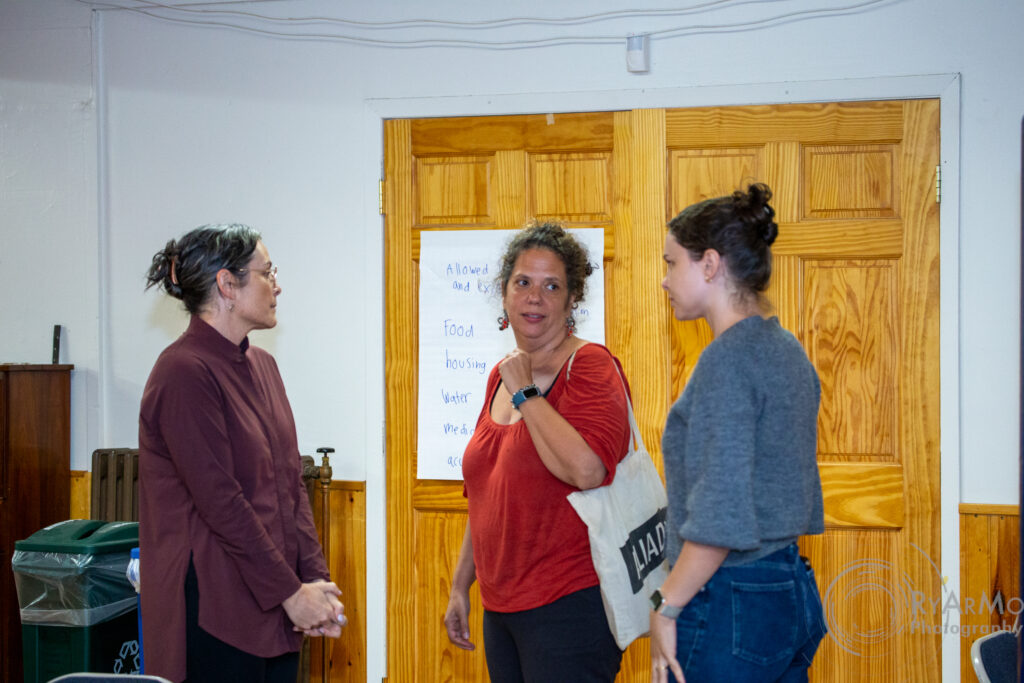
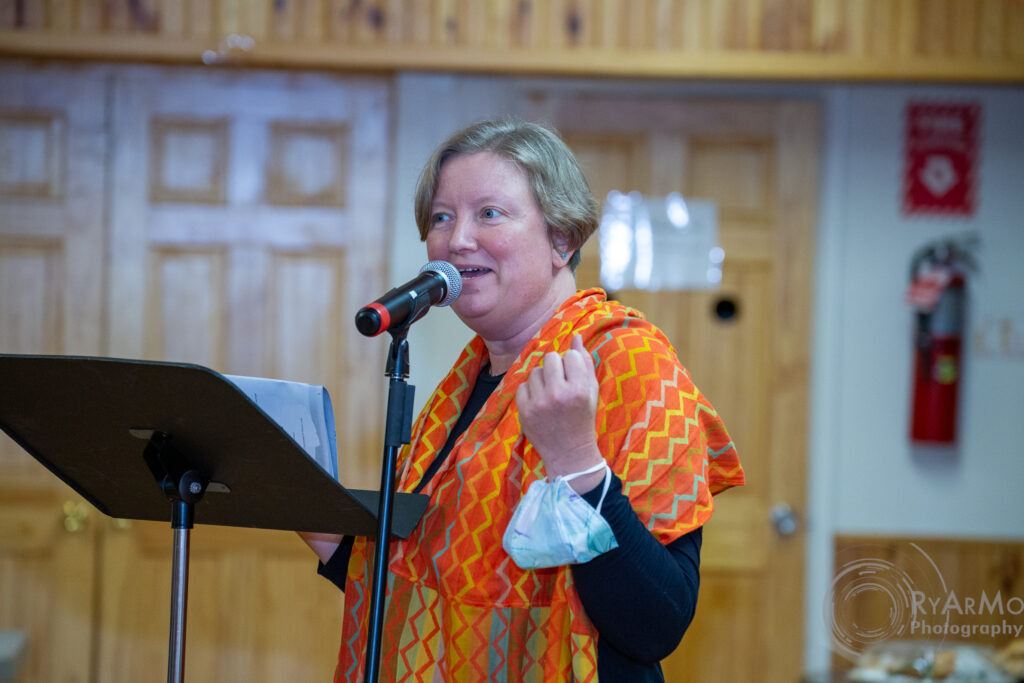
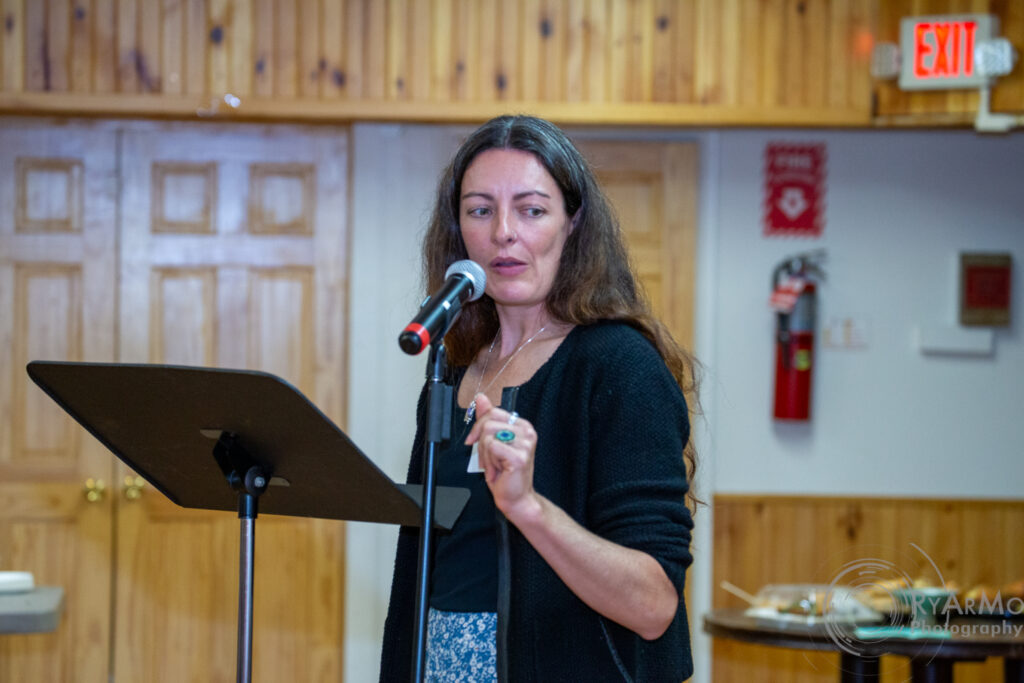
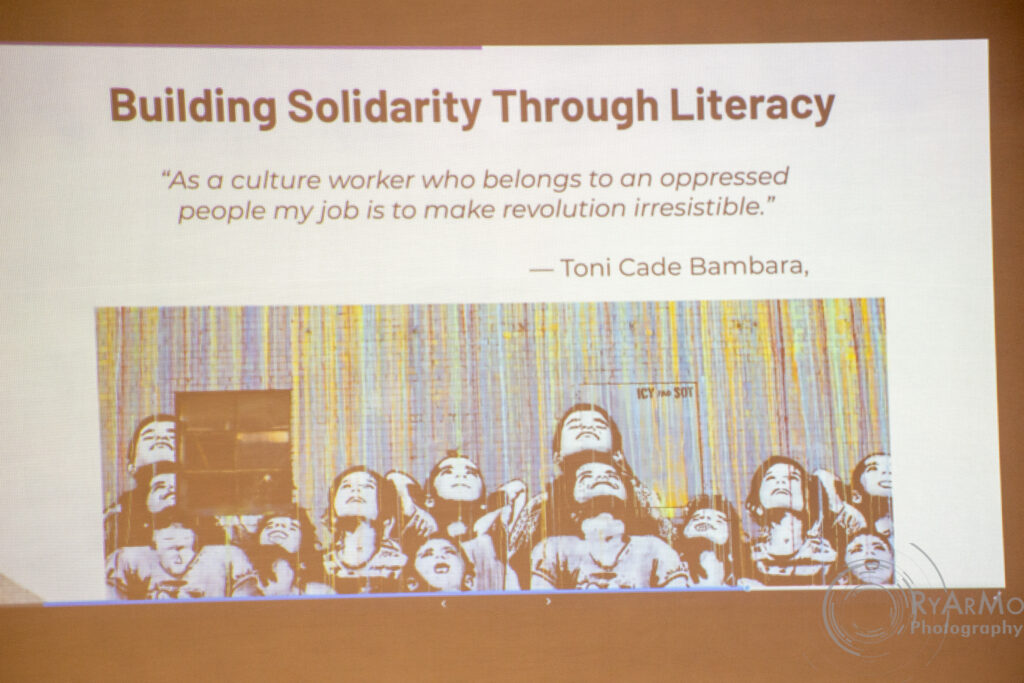
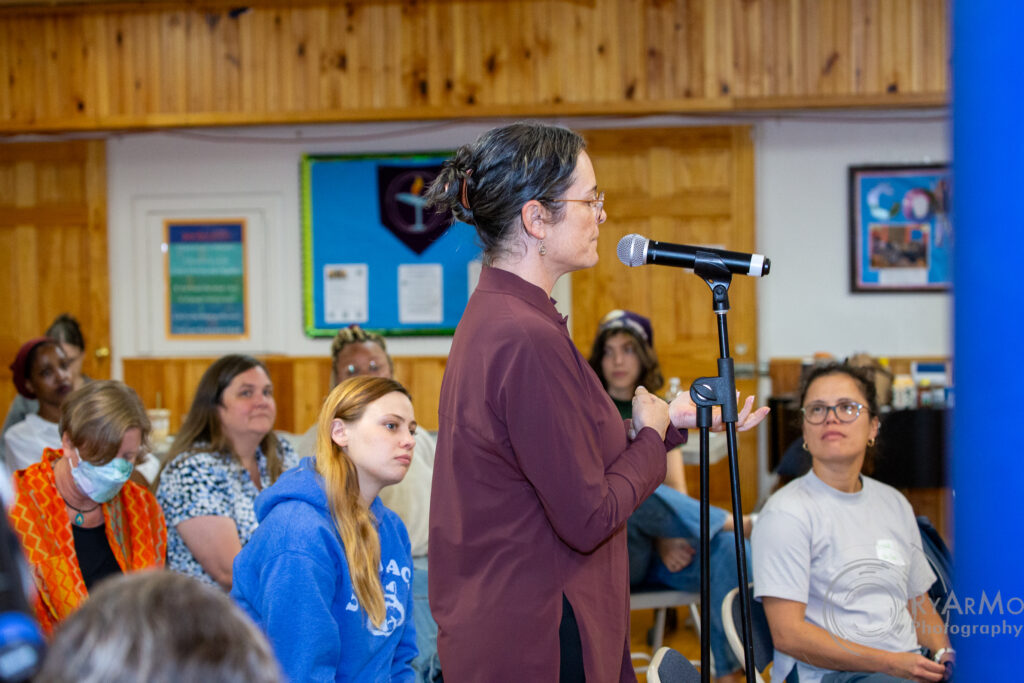
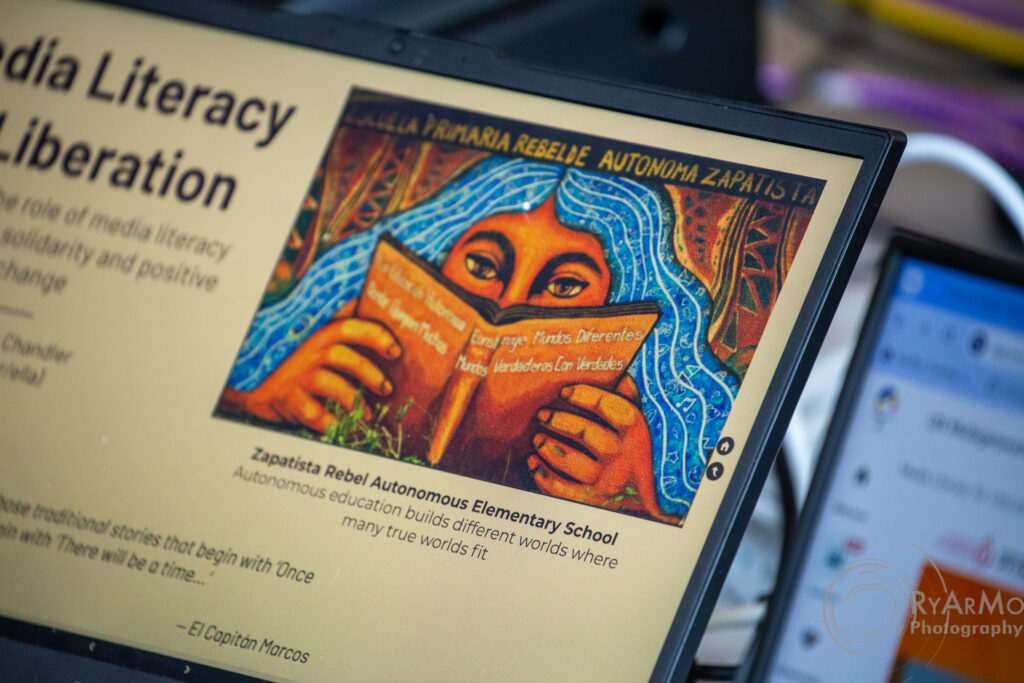
Now, more than ever, we are called to faithfully skill up and connect for global solidarity practice with a clear analysis about empire and power. We must know both to care and how to care for each other and this planet and practice, practice, practice for the wellbeing of everyone every day. Just as it matters that we recognize interdependence, it matters that we learn to skillfully practice solidarity.
Image credit: UUSC
